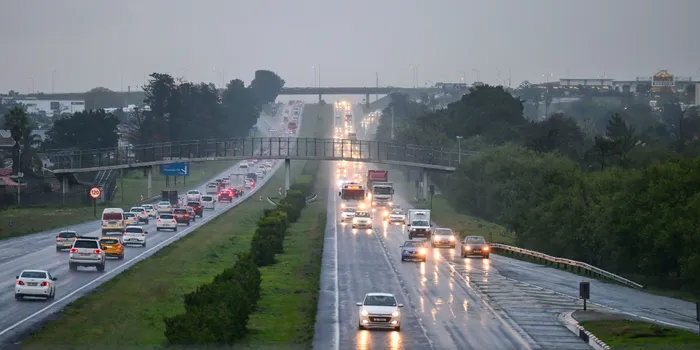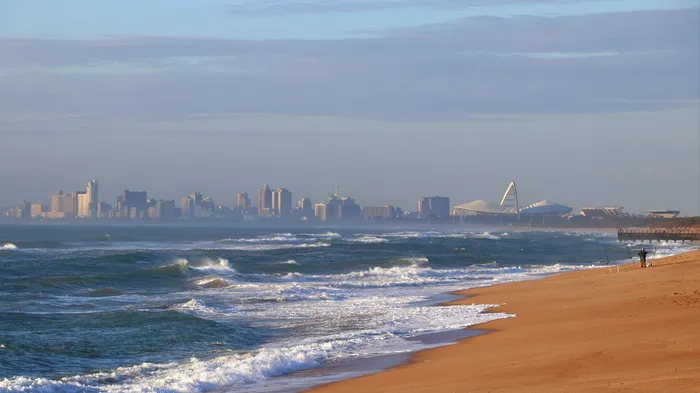Economic depression impacts local tourism
The Automobile Association (AA) announced a staggering 32.5% decrease in road crashes and a 45.6% reduction in fatalities compared to Easter 2024. This significant improvement, hailed as a milestone in road safety, invites scrutiny into the economic context that may have influenced domestic travel behaviours.

The KwaZulu-Natal Department of Transport has reported a significant reduction in road fatalities over the recent Easter weekend.
Image: Henk Kruger / Independent Newspapers
DESPITE a notable decline in vehicle accidents and fatalities during the Easter period, experts suggest that economic factors may have led to reduced domestic travel in South Africa.
The Automobile Association (AA) this week announced road crashes decreased by 32.5% while fatalities declined by 45.6% compared to the same period last year – marking the lowest Easter-weekend figures recorded in the past three years.
However, authorities in the hospitality and economic sectors believe that far less motorists were on the roads due to belt tightening measures and the uncertainty over the proposed Value Added Tax (VAT).
The AA attributed the drop in the number of fatalities to high-visibility law enforcement, impactful public education under the theme #GotHomeSafe, and multi-sector collaboration that played a critical role in influencing road user behaviour.
While celebrating the overall decline in crashes and fatalities, the AA expressed concern over the increase in fatalities in Mpumalanga and the ongoing high number of pedestrian deaths, which now accounts for nearly 50% of all road fatalities nationally.

The Federated Hospitality Association of South Africa has seen a strong cooling off of the domestic economy.
Image: File
Brett Tungay, chairperson of the Federated Hospitality Association of South Africa (FEDHASA) East Coast region believes the decline in crashes was directly in line with the decrease in tourist volumes coming into KwaZulu-Natal.
"Since the beginning of this year, there's definitely been a drop in the domestic market coming into the province. It has been busy but not traditional Easter and long weekend busy.
"The long weekends were busy, but where historically we would have seen good trade through the midweeks, we are not seeing that this year. From the restaurants and accommodation, we are seeing a strong cooling off of the domestic economy," said Tungay.
He said the VAT increase debacle had a huge negative impact for the economy.
"That is going to psychologically play on the domestic spend for a couple of months, unfortunately.
"People are not seeing the economic changes anticipated with the Government of National Unity (GNU). They are seeing more of the same, not creating any growth at all, which is disastrous. Unfortunately when it comes to hospitality we are a luxury spend," said Tungay.
Economist Dawie Roodt said people may have stayed home because of the economy.
"The petrol price came down nicely and that should've boosted the demand for travelling, but the macroeconomic environment is not good for travelling.
"Macroeconomic conditions are not good. On a per capita basis we are probably poorer today than we were a year ago. Unemployment is also a significant reason for reduced travel. All the industries are suffering in the country," he said.
Roodt said the political uncertainty around the VAT issue and the possibility of the GNU coming to an end creates uncertainty and anxiety as well.
"My estimate for economic growth this year is probably going to be less than 1% because of all the uncertainty. And uncertainty is bad for the economy and I guess that also contributed to less people travelling," said Roodt.
Dr Ntokozo Nzimande, senior lecturer in the Department of Economics at the University of Johannesburg, said due to the cost of living people could have chosen to minimise travel which may be the reason why there is a drop in the number of crashes and fatalities on the road.
"People want to save and minimise travel. At the time there was also the concern about whether the VAT would increase or not. That changed people's purchasing power. They were cautious of the VAT increase. People are avoiding big and unnecessary spending as they are aware of the hard times to come," said Nzimande.
Bobby Ramagwede, AA CEO, said while official data on traffic volumes through major toll plazas during the 2025 Easter period has not yet been released, the marked decline in road crashes and fatalities suggests a positive shift in road user behaviour and enforcement effectiveness.
"Toll plaza data specific to vehicle volumes entering KwaZulu-Natal during the 2025 Easter period and accompanying school break has not yet been publicly released yet. However, based on long-term patterns, KZN remains one of the most popular Easter and holiday destinations in the country," said Ramagwede.
The busiest routes during Easter are the N3 between Johannesburg and Durban, serving as a major corridor for holidaymakers heading to KwaZulu-Natal, the N1 North from Johannesburg to Limpopo, which experiences a notable spike in traffic during Easter due to the annual Zion Christian Church (ZCC) pilgrimage to Moria.
Other routes are the N4 between Gauteng and Mpumalanga, and the N1 between Gauteng and the Free State.
Easter 2025 recorded the lowest number of crashes and fatalities over the past three years. Road crashes declined from 209 in 2024 to 141 in 2025. In comparison, 2024 had 209 crashes and there were185 crashes and 225 fatalities in 2023.